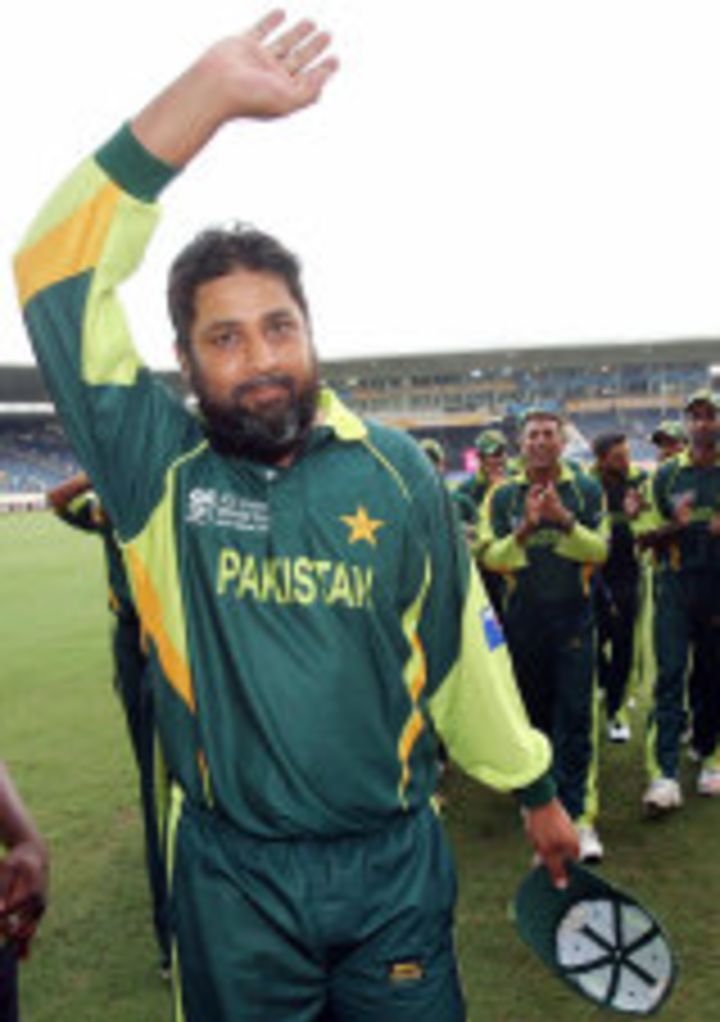Darkest before the dawn

Osman Samiuddin
It's a new dawn, it's a new day, it's a new life For me and I'm feeling good
'Feeling Good' - Eunice Waymon aka Nina Simone, 1965
A brief dawn in Lahore gave way to the rising of the sun at 5.53am PST today. Six hours and seven minutes later, at Gaddafi Stadium, one day ended in Pakistan cricket with Inzamam-ul-Haq's heated press conference. An hour after that, a new day began with the chairman's press conference.
Four years ago, another new dawn greeted Pakistan's cricket and yet it appears in no better shape today than when Waqar Younis's dysfunctional rabble was dumped out of South Africa. Possibly worse, some contend. Cynicism in these times comes cheap and easy. There is no captain, no coach, no selectors and a chairman who was waiting to resign but now hasn't. Yet hope must be found somewhere.
Well, unlike 2003 axing over half the squad is unlikely and on balance, unnecessary. A changing of the guard felt natural then, in a team still carrying Wasim Akram, Waqar Younis and Saeed Anwar, all of whom had seen better decades.
This Pakistan side, in contrast, is still young; officially (birth records being the imposters that they are here) only three of Pakistan's 15 in the Caribbean are over 30. Outside, Mohammad Asif and Abdul Razzaq also remain twenty-somethings.
The captaincy need not be such a thorny decision either. As leader, the succession plan points to Younis Khan to assume a position he, and everyone else, has been expecting for some time. That is something not oft-said in Pakistan.
Yet, there exists hesitancy within the PCB, also evidenced by the chairman's willingness to defer an appointment for at least a month (though he remains, personally, in favour). Younis appears a widely-backed choice and the logical one too, his Champions Trophy tantrum notwithstanding. Given how rare consensus is locally, should it not be seized upon immediately?
A new selection committee has to be established and, refreshingly, it will be Pakistan's first-ever professional one, with full-time salaried-selectors, answerable for their work. They might also consider enhancing their influence, especially over the captain; Wasim Bari's men, for much of the end of their tenures, were largely men for rubberstamping and Inzamam merely another in a long, undistinguished line of captains who have merrily overruled and ignored selectors.
The new coach will likely speak the same language as the players, though the criteria should be skills rather than language. Ramiz Raja, who was instrumental in bringing Bob Woolmer to Pakistan, said recently that Pakistan may be able to operate without a coach by giving the captain more power. Given Pakistan's familiarity with dictatorial captains and their failings, the idea is a risky one. Aaqib Javed has been spoken of, and he has valuable junior experience, but he is newly-responsible at the NCA and with Mudassar Nazar, his brief to discover and develop young talent may suit him better.
Even by the exceptionally broad parameters of sanity within which Pakistan cricket operates, these last eight months have been something else; not just traumatic and volatile but ultimately, macabre and disturbing. But it is darkest before dawn, humans love repeating. Pakistan cricket has seen numerous new dawns, but it has not seen this much darkness. The hope, as it now must be, is that it will give way to a dawn that has never before been seen either.
Andrew McGlashan is an assistant editor at ESPNcricinfo
Read in App
Elevate your reading experience on ESPNcricinfo App.